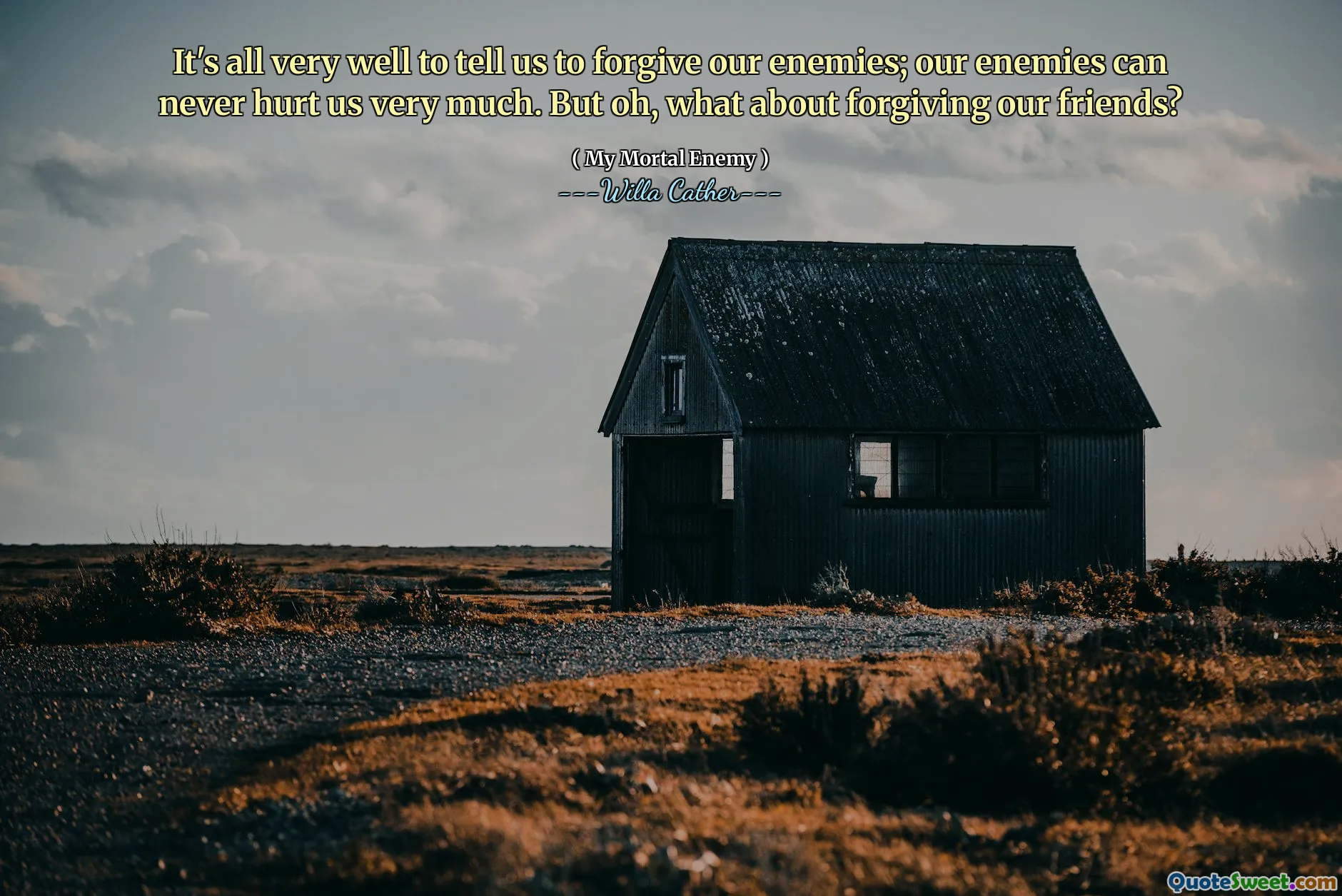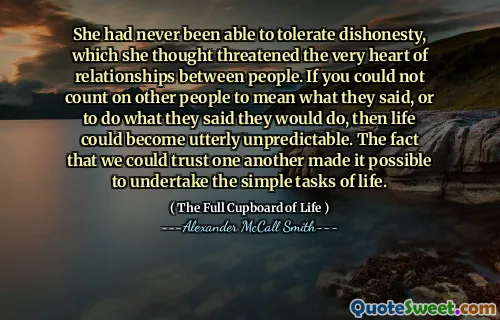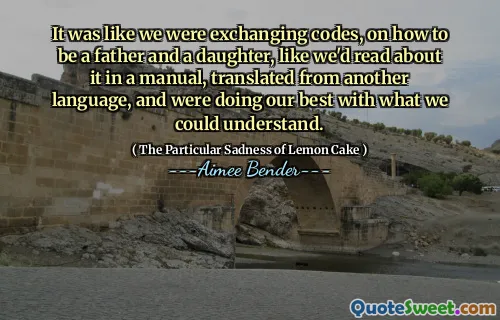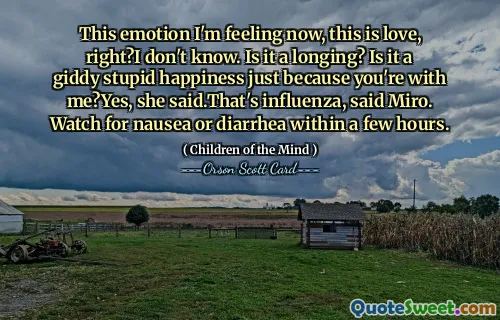
It's all very well to tell us to forgive our enemies; our enemies can never hurt us very much. But oh, what about forgiving our friends?
This quote from Willa Cather's My Mortal Enemy starkly highlights the deeply complex nature of forgiveness, particularly when it concerns those closest to us. We often find it easier to forgive enemies because the harm they inflict may feel distant or even expected—a guardedness against antagonism. But when friends, who hold an intimate place in our lives, cause pain, the wounds cut deeper and are more difficult to reconcile. The interpersonal dynamics among friends are layered with trust, expectations, and emotional investments, which make betrayal or hurt profoundly disorienting.
Forgiving friends requires a nuanced form of empathy and vulnerability that goes beyond the usual understanding of forgiveness. It challenges us to confront the paradox of human relationships: that those who have the potential to bring us the greatest joy can also cause the deepest suffering. This quote compels readers to reflect on the ambivalent nature of forgiveness—as both an act of compassion and a path toward personal healing.
Ultimately, it invites us to acknowledge the emotional labor involved in forgiveness within close relationships. It recognizes that forgiving friends is not just about letting go; it is about reconstructing trust and redefining the bonds that shape our personal identities. This complexity enriches my understanding of forgiveness as a process that demands courage, patience, and above all, authenticity.






